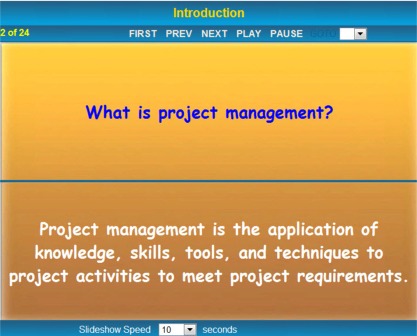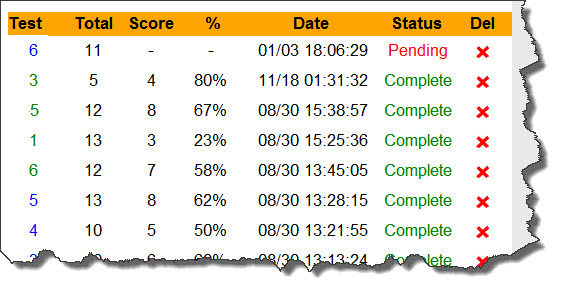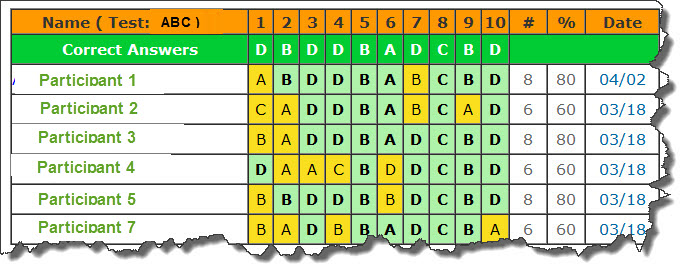- Synopsis
- Study Material
- Concept Refresher
- More Material
Study Material - Detail Reading

The Study material is built around accelerated learning techniques and carefully designed learning materials.
This intense, focused training delivers a passing PMP® Exam score in your very first attempt.
The Study material is created with a detailed explanation of each concept and documented with
graphical representation which helps understand the concepts.
The Study material is developed to study after the class and before reading the PMBOK® Guide 5th edition.
It is prepared based on PMBOK® Guide 5th version.
Each chapter in the study material contains 5 to 15 pages with detailed explanation and can be
downloaded or printed. The Study material is available for the following project management knowledge areas.
Below we have given brief portion of the explanation from each study material.
Project Introduction and Framework
- Introduction:
- A Project is completed when its goals and objectives are met and is signed off by stakeholders.
- Projects are not always strategic or critical.
- Projects are not ongoing operations (or processes).
- Projects are not always successful.
- Projects can be progressively elaborated.
- and, more detail explanation on Projects, Programs, Portfolios and Operations, Progressive Elaboration,
Project Objectives, PDCA Cycle, Role of Project Manager and other stakeholders, EEF, Project Selection methods etc,. - Project Lifecycle and Organization:
- Project life cycle is a progression through a series of different stages of development.
- Product life cycle lasts from the conception of a new product to a withdrawal.
- Project life cycles are similar for all projects regardless of their size and complexity.
- A product can require or spawn may projects over its life.
- Project phases in project life cycle are generally sequential and sometimes overlapping.
- Product phases in product life cycle are generally sequential and non-overlapping product phases.
- Project life cycle occurs in one or more phases of product life cycle.
- Last life cycle phase for a product is generally the product retirement.
- Conception, growth, maturity, decline and withdrawal are some of the product.

- and more details explanation with tables, charts and flow charts on many topics. - Project Management Processes:
- A Process: is a set of interrelated actions and activities performed to achieve an outcome.
- Project manager must consider organizational process assets (OPAs) and enterprise environmental factors (EEFs)
for each process, even if they are not explicitly listed as input.
- The project manager and project team are responsible for determining which processes within each process group
are appropriate for the project on which you’re working. This is called tailoring.
- There are 5 project management process groups that the PMBOK® Guide documents
- Easy to remember techniques for inputs, Outputs and Tools & Techniques.
We have many tricks and tips to understand ITTOs and other concepts.




